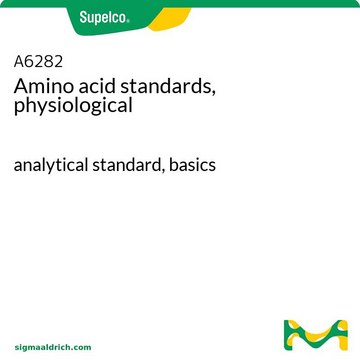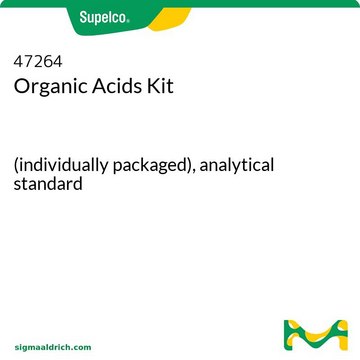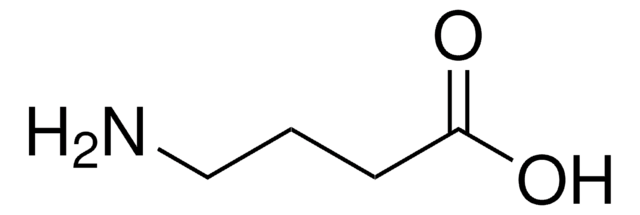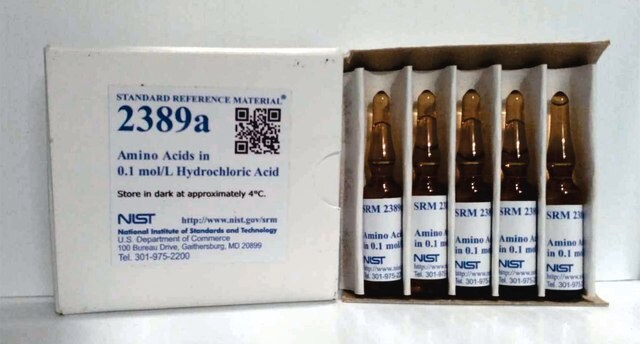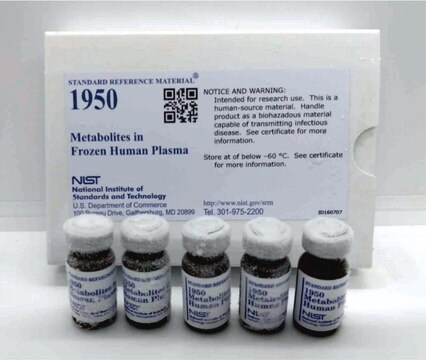A9906
Amino acid standards, physiological
analytical standard, acidics, neutrals, and basics
About This Item
Recommended Products
grade
analytical standard
analyte chemical class(es)
amino acids, peptides, proteins
technique(s)
HPLC: suitable
gas chromatography (GC): suitable
color
colorless
application(s)
food and beverages
format
neat
storage temp.
2-8°C
Looking for similar products? Visit Product Comparison Guide
Application
Components
- L-Alanine
- Ammonium chloride
- L-Arginine
- L-Aspartic acid
- L-Cystine
- L-Glutamic acid
- Glycine
- L-Histidine
- L-Isoleucine
- L-Leucine
- L-Lysine
- L-Methionine
- L-Phenylalanine
- L-Proline
- L-Serine
- L-Threonine
- L-Tyrosine
- L-Valine
- β-Alanine
- L-α-Amino-n-butyric acid
- γ-Amino-n-butyric acid
- DL-β-Aminoisobutryic acid
- L-Anserine
- L-Carnosine
- L-Citrulline
- L-Creatinine
- Cystathionine
- Ethanolamine
- L-Homocystine
- δ-Hydroxylysine
- Hydroxy-L-proline
- 1-Methyl-L-histidine
- 3-Methyl-L-histidine
- L-Ornithine
- Sarcosine
- Taurine
- L-Tryptophan
- Urea
Other Notes
related product
Storage Class Code
12 - Non Combustible Liquids
WGK
WGK 2
Flash Point(F)
Not applicable
Flash Point(C)
Not applicable
Regulatory Listings
Regulatory Listings are mainly provided for chemical products. Only limited information can be provided here for non-chemical products. No entry means none of the components are listed. It is the user’s obligation to ensure the safe and legal use of the product.
ISHL Indicated Name
Substances Subject to be Indicated Names
ISHL Notified Names
Substances Subject to be Notified Names
JAN Code
A9906-BULK:
A9906-VAR:
A9906-10ML:4548173292915
A9906-1ML:4548173292922
A9906-5ML:4548173292939
Choose from one of the most recent versions:
Already Own This Product?
Find documentation for the products that you have recently purchased in the Document Library.
Customers Also Viewed
Our team of scientists has experience in all areas of research including Life Science, Material Science, Chemical Synthesis, Chromatography, Analytical and many others.
Contact Technical Service

